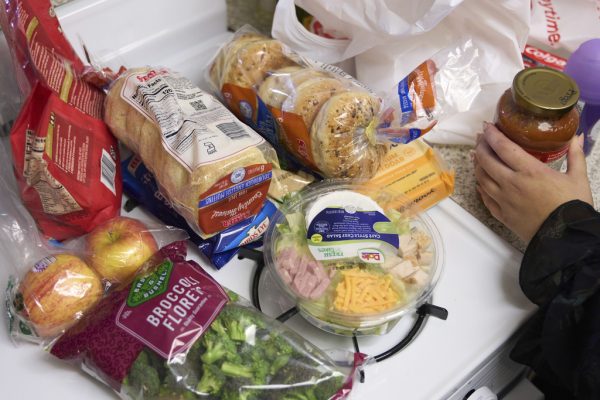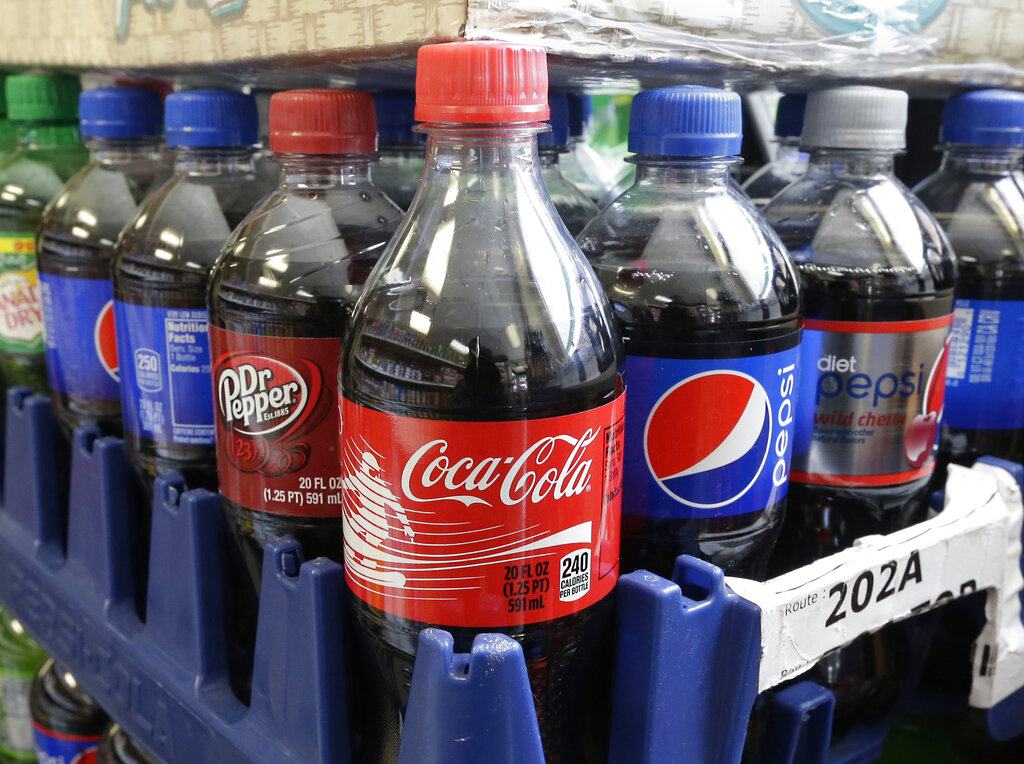The Texas Senate passed a bill that prohibits people who receive Supplemental Nutrition Assistance Program (SNAP) from using the program’s benefits card to purchase “junk food and sweetened drinks.”
Sen. Mayes Middleton, R-Galveston, said he authored SB 379 to “help make sure SNAP can’t be used to purchase junk food and sweetened drinks that are making our children and families unhealthy.”
The Senate vote follows the March 28 announcement from head of Health and Human Services (HHS) Robert F. Kennedy Jr., that the federal SNAP program would allow states to bar recipients of federal food assistance from using their EBT, or Lone Star, cards to pay for soda or junk food snacks.
In 2023, more than one in five American adults in all states and territories were obese.Obesity is defined as excessive body fat with a body mass index of 30 or higher as the usual benchmark, according to the U.S. Centers for Disease Control and Prevention (CDC).
The number is even higher in Tarrant County. In 2022, two out of three adults in the county were obese or overweight. The risk of serious medical conditions such as high blood pressure, diabetes, heart disease and certain cancers increases with obesity.
“Taxpayer-funded junk food turns into taxpayer-funded healthcare,” Middleton continued. “This bill is not about restricting individual buying power, but rather making sure taxpayer-funded food stamps are used to buy nutritious food essential to health and well-being.”
For low-income families in north Texas, nutritious food options are often limited. The North Texas Food Bank aims to close the hunger gap in North Texas by providing access to nutritious food, with a service area that extends to 12 counties.
According to the North Texas Food Bank, 664,000 people in the food bank’s service area face food insecurity, a number larger than the entire population of Las Vegas.

More than 3.4 million Texans receive SNAP benefits, which is roughly equivalent to the entire population of Utah, according to Every Texan. Still, only seven out of 10 of those eligible for SNAP in Texas are enrolled in the program; one of country’s the lowest participation rates.
In addition to SB 379, several bills have been filed to restrict what SNAP recipients can purchase with their cards.
“While the intent of the bill is to promote healthier eating habits among SNAP recipients, there is little evidence to suggest that banning certain foods leads to improved diets,” said Jeff Smith, director of communication for the food bank. “The focus should be on expanding resources, promoting healthier food access, and reducing stigma to improve health outcomes for all.”
- HB 2955, which seeks to prohibit program recipients from using funds to buy candy and soft drinks, and require the state to seek a federal waiver to enforce restrictions.
- HB 3188 would prohibit SNAP recipients from using EBT cards to purchase sweetened beverages, candy, potato or corn chips and cookies, but would allow certain purchases such as milk products or substitutes.
Officials with the food bank said SB 379 raises several issues such as placing burdens on small grocers and exacerbating food insecurity, especially in rural Texas. Smith said the food bank has joined a coalition of more than 80 organizations in the Texas Food Policy Roundtable in urging state lawmakers to vote against SB 379.
He said that instead of restricting food, the focus should be on addressing root causes like poverty, full-time living wage job opportunities, access to healthy food, and transportation.
“Restricting SNAP purchases is an unnecessary, costly, and ineffective policy that burdens small businesses, stigmatizes low-income families, and adds bureaucratic red tape without improving public health,” said Smith.
Stacie Ellis, the registered dietician at the University of Texas at Arlington, said there are some downfalls to restricting certain foods.
“If you have a limited income, there are times when you may want to enjoy those fun foods from time to time,” said Ellis. “I always preach moderation, which means you are allowed from time to time those food items that we generally say are ‘junk food.’”
Ellis said that since people from low income populations are the most vulnerable to chronic diseases related to obesity, the legislation may actually help support better overall health.
“We do see that they are more likely to be obese, have heart disease, and diabetes,” she said. When you limit those food items that contribute to those conditions, we hopefully would see that there would be improvements in their health outcomes overall.”
Ellis said that certain foods impact behavior, especially for children eating sugary cereals and candies.
“I volunteer with children and I see first hand what happens as soon as they eat candy and ice cream, and they get super hyper,” said Ellis. “If they are not eating it, we will have a decrease in problem behaviors in schools, they will be more likely to be able to pay attention in the classroom and their grades should improve. Nutrition really does make a difference long term.”










